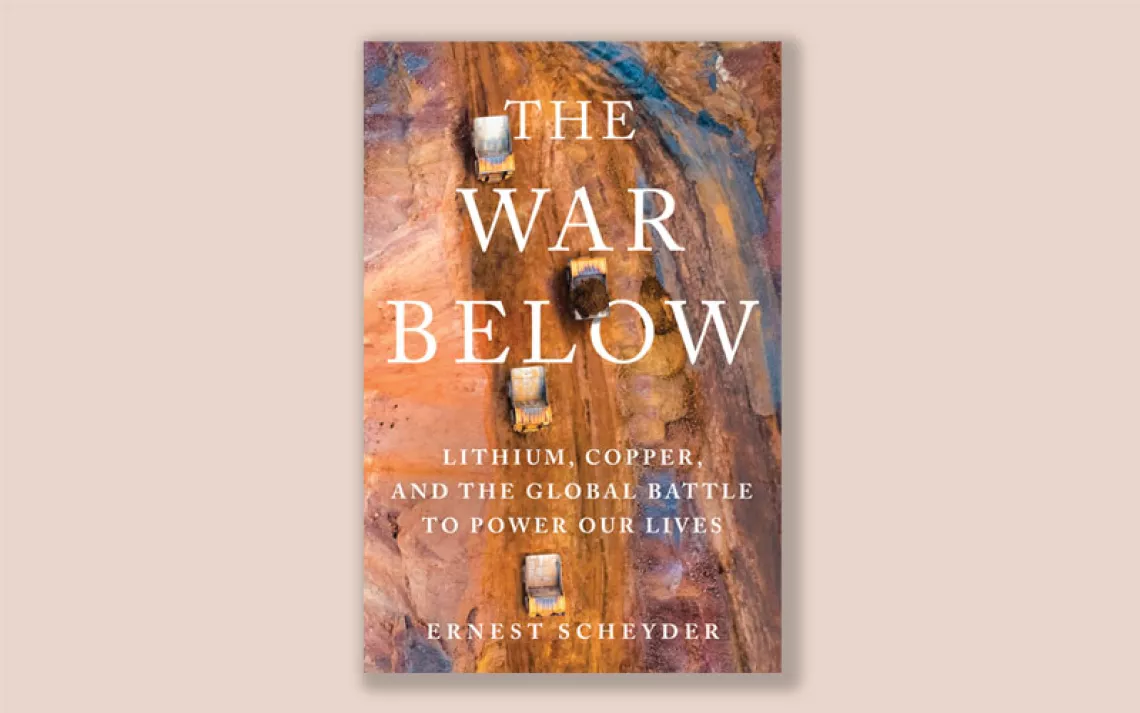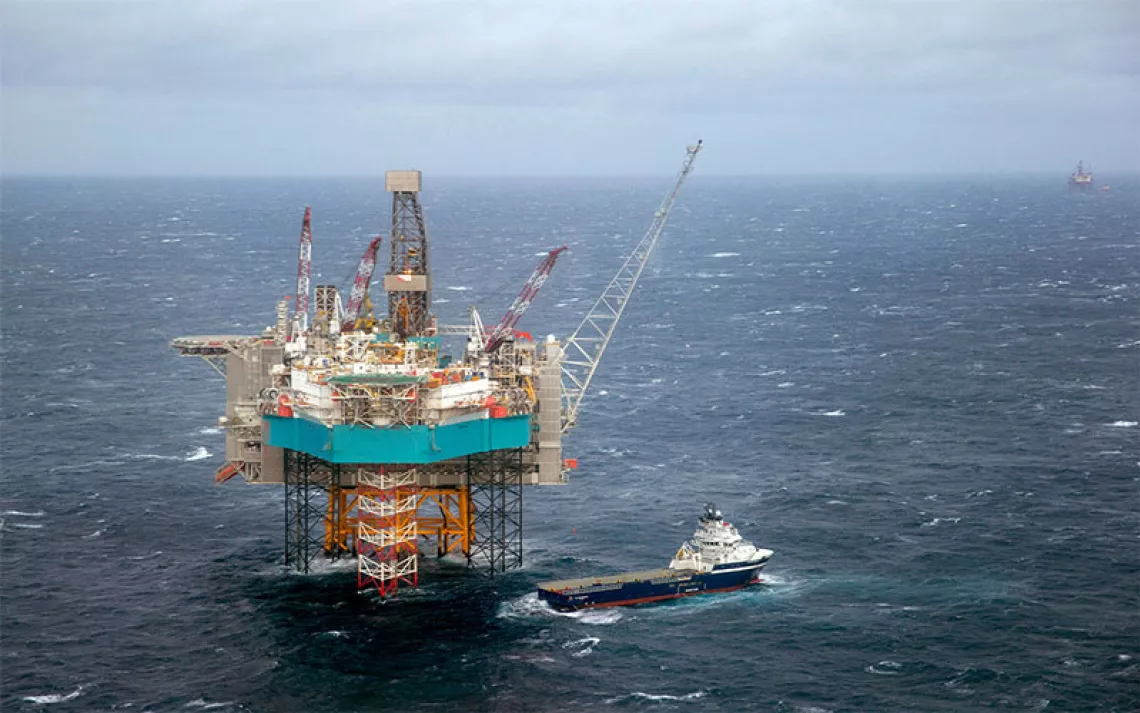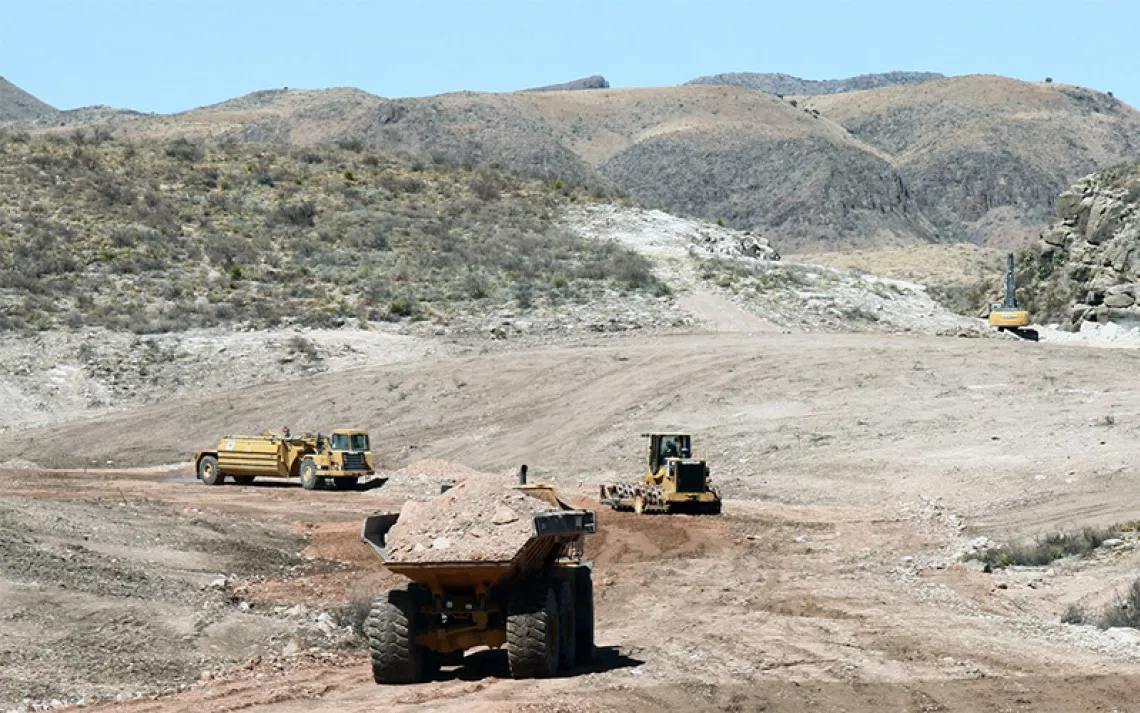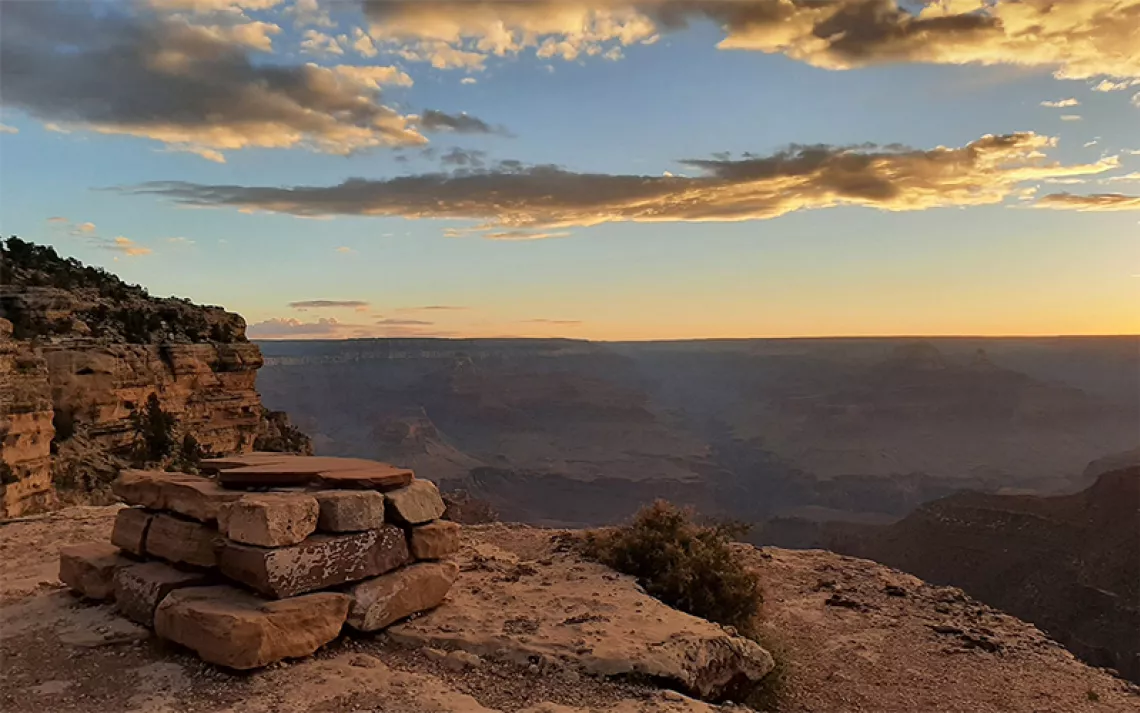Federal Court Delivers a Reprieve to Apache Members Seeking to Save a Sacred Site
Oak Flat has been spared a copper mine for now—but the legal maneuvering continues

Photo by Molly Riley/AP Photo
“A step forward for truth, protection of our religion, and sustainability for all life.” That’s how Apache activist Wendsler Noise characterized a late-November decision by a federal appeals court to rehear arguments to protect sacred Native land in Arizona from destruction by an international mining conglomerate.
The Ninth Circuit Court of Appeals vacated an earlier decision by a three-judge panel to allow the federal government to go ahead with the planned handover of nearly 2,500 acres of Tonto National Forest Service land to Resolution Copper, owned by two of the largest mining companies in the world — Australian BHP and British Rio Tinto. The case will now be reheard by a larger panel of Ninth Circuit judges. The November ruling marks a legal victory in the Apaches’ effort to protect the site from the copper companies, a battle they’ve been fighting in Congress for more than a decade.
Luke Goodrich is the lead lawyer for Apache Stronghold, a coalition of Native peoples, including some 30,000 members of the Western Apache nation, that is dedicated to protecting the area. Goodrich, who works for the Becket Fund for Religious Liberty, a Washington, DC, organization that specializes in defending religious liberties, sums up the case this way: “Oak Flat is a key part of Western Apache religious practices. They've been worshiping there since before European contact. Since time immemorial. What the government is proposing to do here is to hand over title to Oak Flat to a foreign-owned copper mining company that will completely destroy the site.”
Neither the federal government, which is the defendant in the case, nor the mining company contests the scope of the destruction should the project move forward. Resolution Copper is open about its plan to blast a large copper deposit from below, a method known as block cave mining that uses robots to bring the ore to the surface through a 7,000-foot-deep mine shaft. As a result, an area nearly two miles wide will collapse into a crater over 1,000 feet deep—about the height of the Empire State Building. For the Western Apache people, Goodrich says, “it will be physically impossible to practice their religion as they have for centuries.”
The case against destroying Oak Flat (Chi'chil Bildagoteel in the Apache language) was brought under the Religious Freedom Restoration Act of 1993, which states that the “government shall not substantially burden a person's exercise of religion.” Testifying before the court in February 2021, Naelyn Pike, a member of the San Carlos Apache Tribe, was asked to explain why her people can’t hold ceremonies somewhere else.
Pike said that for countless generations, Chi'chil Bildagoteel has been a sacred “direct corridor” to the Creator. When she goes there to pray, as her ancestors have always done, “My prayers directly go to our Creator.” The corridor exists only there.
The massive crater would swallow ancient petroglyphs and plants used for medicines and food, and kill or scare off the animals that have lived there for millennia. The disruption, she said, would displace the spirit that lives there. Pike wept as she told the court, “Without that spirit of Chi'chil Bildagoteel, it is like a dead carcass.”
The government argued that destroying Oak Flat wouldn’t violate the Religious Freedom Restoration Act because the plaintiffs failed to show a “substantial burden” to their exercise of religion, a position that Apache Stronghold lawyer Michael Nixon described as “terribly cynical and twisted.”
When the court sided with the government in June 2022, Judge Marsha Berzon issued a dissenting opinion that criticized the majority opinion as “absurd,” “illogical,” and “incoherent.”
In the newest decision, a majority of Ninth Circuit judges agreed with Judge Berzon’s overarching opinion as they voted to rehear the case. This could be a good omen for Apache Stronghold, given that less than 1 percent of requests for “en banc” rehearings are granted.
Whichever side loses could appeal the decision to the Supreme Court. In fact, Apache Stronghold lawyer Goodrich was already preparing to petition the high court before the Ninth Circuit vacated its earlier decision. And if it ends up in the Supreme Court, Goodrich believes Apache Stronghold will likely win.
“Over the last decade, there have been twenty-two religious freedom cases decided in the Supreme Court,” he points out. “How many do you think were wins for the religious side?” he asks and then answers his own question, “Twenty-one.”
Apache Stronghold leader Wendsler Noise is also optimistic.
“I really believe it’s not only me feeling blessed. So many people everywhere are feeling the same, because they understand how Resolution Copper undermined the American system to obtain this opportunity to destroy the southwest of Arizona.”
He’s referring to how, after years of unsuccessfully trying to get Congress to hand over the land, a backroom deal in 2014 brokered by the late Arizona senator John McCain inserted a land-swap for Oak Flat into a must-pass Defense Authorization Bill.
Despite his optimism, Noise added, “Of course, I’m staying with our prayers because we understand it’s evil we are fighting.”
 The Magazine of The Sierra Club
The Magazine of The Sierra Club



